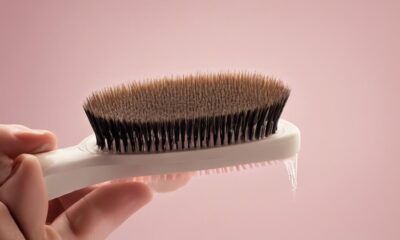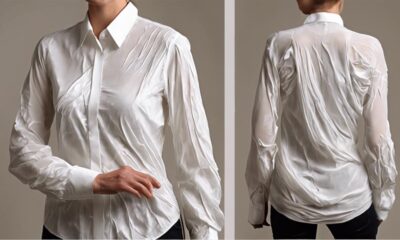Beginners Guides
How Long Does a Carpet Last
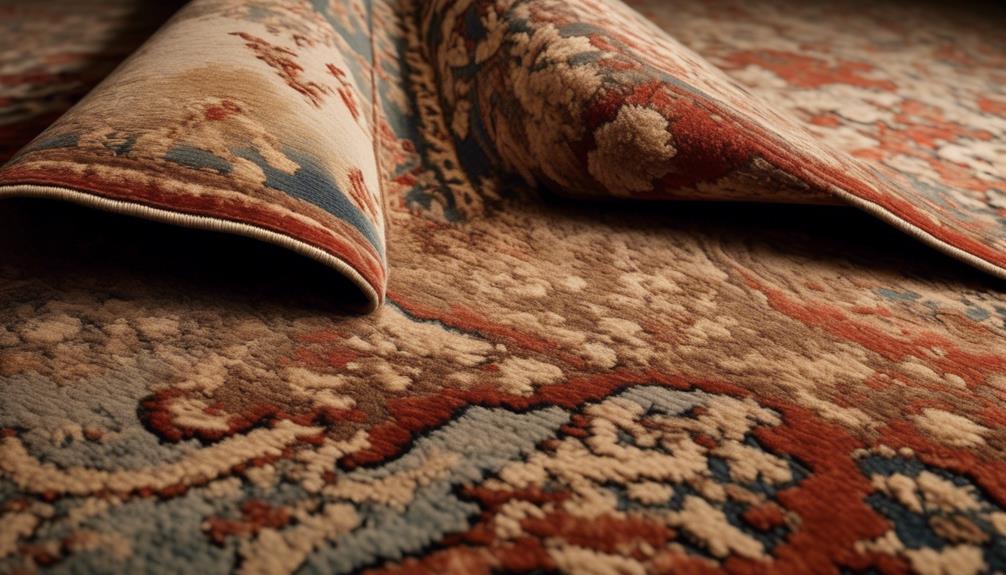
We are all aware that sometimes a carpet appears to be durable, but the truth is it may not last as long as we think.
Have you ever wondered just how long a carpet can actually endure the wear and tear of everyday life?
There are numerous factors that come into play, and in this discussion, we'll explore the ins and outs of carpet longevity.
From the type of material to the level of maintenance, there are key elements that can significantly impact the lifespan of your carpet.
Join us as we unravel the mysteries of carpet durability and learn how to make the most of this essential home investment.
Key Takeaways
- Regular cleaning, including vacuuming and professional deep cleaning, is crucial for extending the lifespan of carpet.
- Different carpet materials have varying levels of durability, with nylon and synthetic materials generally lasting longer than wool or natural fiber carpets.
- Signs of wear, such as fraying edges, flattened fibers, stubborn stains, lingering odors, and mold or mildew growth, may indicate the need for carpet replacement.
- When deciding between repairs and replacement, it is important to consider the cost, aesthetics, and long-term benefits of each option.
Factors Affecting Carpet Longevity
Factors such as foot traffic, maintenance, and environmental conditions significantly impact the longevity of carpets. Regular cleaning is crucial in high traffic areas to prevent the buildup of dirt and grime, which can wear down carpet fibers over time. Vacuuming at least once a week and scheduling professional deep cleaning every 12-18 months can help extend the life of your carpet.
Additionally, color fading is a common concern, especially in areas exposed to direct sunlight. To minimize this, consider using window treatments or UV-protective films to shield carpets from excessive sun exposure.
Water damage is another factor that can drastically reduce the lifespan of a carpet. It's essential to address spills and leaks promptly to prevent moisture from seeping into the carpet padding and causing mold or mildew growth. Using moisture-resistant padding and promptly drying wet areas can help mitigate the risk of water damage.
Lifespan of Different Carpet Materials
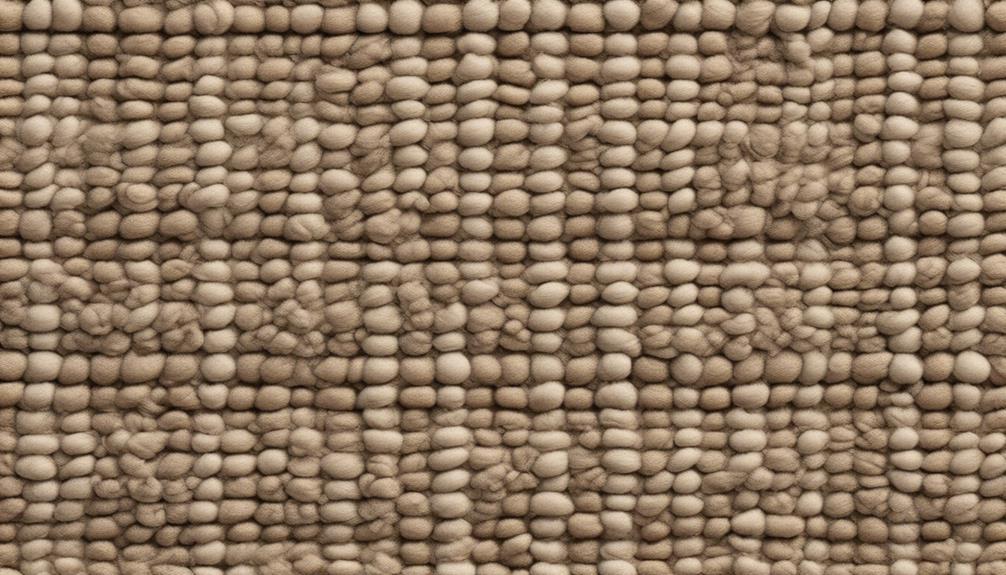
When considering the lifespan of different carpet materials, it's important to evaluate their durability and resistance to wear and tear in various environments. Durability comparison is crucial when determining how long a carpet will last.
For instance, nylon carpets are known for their resilience and can withstand heavy foot traffic, making them a durable choice for high-traffic areas. On the other hand, wool carpets aren't as resistant to abrasion and may show signs of wear more quickly in these environments.
Additionally, understanding the environmental impact of different carpet materials is essential in predicting their longevity. For example, natural fiber carpets like wool or sisal are biodegradable and environmentally friendly, but they may require more maintenance and have a shorter lifespan compared to synthetic materials like nylon or polyester.
Considering these factors can help consumers make informed decisions about which carpet material will best suit their needs and provide the longevity they desire.
Signs of Wear and When to Replace
As carpet ages, it may exhibit visible signs of wear, such as fraying edges or flattened fibers, indicating the need for replacement. It's important to know when to replace your carpet to maintain a clean and visually appealing living space. Here are some common signs that indicate it's time to consider replacing your carpet:
| Signs of Wear | When to Replace |
|---|---|
| Fraying edges | When the fraying extends to a large area |
| Flattened fibers | When high-traffic areas show heavy wear |
| Stubborn stains | When professional cleaning doesn't help |
| Lingering odors | When odors persist despite cleaning |
| Visible mold or mildew | Immediately, to prevent health issues |
When considering carpet replacement, cost is a significant factor. DIY repairs, techniques such as patching or re-stretching, can sometimes be used to extend the lifespan of your carpet. However, it's essential to weigh the cost of repairs against the cost of replacement, as worn-out carpet can detract from the overall aesthetics and value of your home. Always consider consulting with a professional to determine the most cost-effective and aesthetically pleasing solution.
Maintenance Tips for Prolonging Lifespan
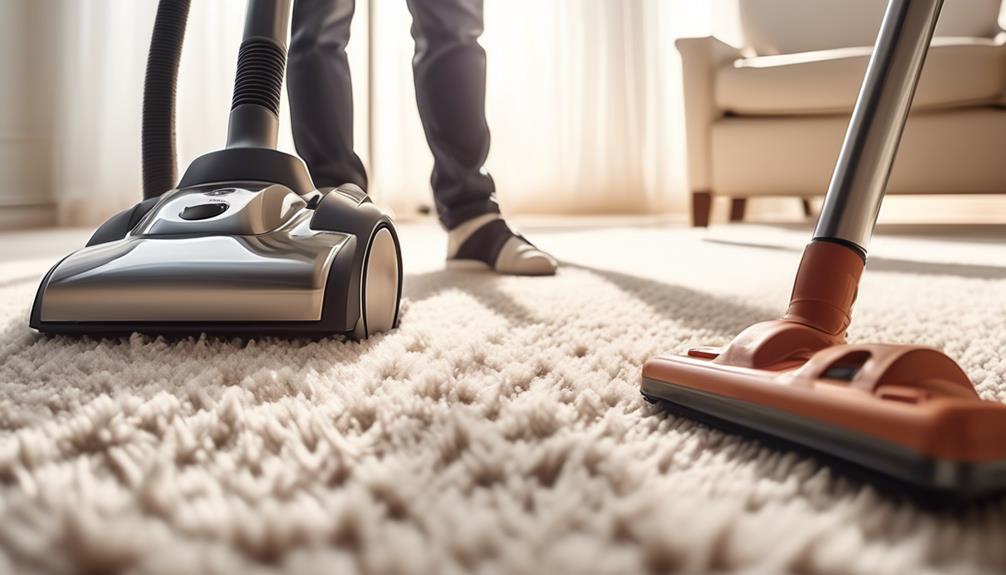
To maximize the lifespan of your carpet, regular and proper maintenance is essential. Regular vacuuming is crucial in preventing the buildup of dirt, dust, and other debris that can wear down carpet fibers over time. We recommend using a high-quality vacuum cleaner with strong suction and a rotating brush to effectively remove dirt and pet hair.
It's important to vacuum high-traffic areas at least twice a week and less frequently used areas at least once a week. Additionally, professional cleaning is a key component of carpet maintenance. Hiring a professional cleaner every 12-18 months, depending on usage, can help remove deep-seated dirt and grime that regular vacuuming may miss.
Professional cleaners use specialized equipment and cleaning solutions to thoroughly cleanse the carpet fibers, extending its lifespan and maintaining its appearance. By adhering to these maintenance practices, you can significantly prolong the lifespan of your carpet and ensure that it remains a beautiful and comfortable addition to your home for years to come.
Professional Care and Carpet Restoration
Professional carpet restoration services utilize advanced cleaning techniques and specialized equipment to revitalize and extend the life of your carpet. When seeking professional care for your carpet, it's essential to find a reputable service provider with a track record of excellence.
Professional cleaning not only removes deeply embedded dirt and allergens but also helps to maintain the carpet's appearance and structural integrity. Moreover, color restoration is a key aspect of carpet restoration. Over time, exposure to sunlight and foot traffic can cause the colors in your carpet to fade. Professional carpet restoration services can employ specialized methods to bring back the vibrancy of your carpet's colors, making it look almost as good as new. These services are especially valuable for antique or high-value carpets, where preserving the original colors is of utmost importance.
Frequently Asked Questions
Are There Any Industry Standards or Guidelines for Determining the Lifespan of a Carpet?
Industry standards for determining carpet lifespan vary based on maintenance techniques and durability. Material composition and warranty coverage also play a role.
Understanding these factors can help in estimating how long a carpet will last. Regular vacuuming and professional cleaning can extend the lifespan, while the type of material and warranty coverage can provide insight into expected durability.
These considerations help in gauging the longevity of a carpet.
How Does Climate or Environmental Factors Affect the Longevity of a Carpet?
Climate impact and environmental factors greatly influence carpet longevity. High humidity can lead to mold and mildew, shortening its lifespan, while excessive sunlight can cause fading and deterioration.
Similarly, heavy foot traffic and pet activity can wear down carpet fibers more quickly. Understanding these influences helps us make informed choices about carpet care and maintenance.
Can the Color or Pattern of a Carpet Affect Its Lifespan?
Color preservation is crucial for extending a carpet's lifespan. Regular vacuuming and professional cleaning are essential maintenance techniques.
Darker colors and intricate patterns may help disguise wear and tear, while lighter colors are more prone to showing dirt and stains.
However, with proper care, any color or pattern can last for many years. It all comes down to consistent maintenance to ensure the carpet's longevity and appearance.
Is It Possible to Repair or Restore a Carpet That Has Significant Wear and Tear?
Yes, it's possible to restore a carpet with significant wear and tear.
Professional cleaning can revitalize the fibers and extend the lifespan, while DIY repair and patching techniques can address specific areas of damage.
Our experience with carpet restoration showed that a combination of professional cleaning and targeted repairs can breathe new life into even the most worn carpets, preserving their beauty and functionality for years to come.
Are There Any Special Considerations for High-Traffic Areas or Commercial Spaces When It Comes to Carpet Longevity?
In high-traffic areas and commercial spaces, carpet longevity is a key consideration. We must take into account the durability of the carpet and the specific demands that these areas impose. Factors like foot traffic, potential spills, and maintenance requirements all play a role in determining the best type of carpet for these spaces.
It's crucial to select carpets designed to withstand heavy use and maintain their appearance over time.
What Factors Can Affect the Lifespan of Carpeting?
The lifespan of carpeting depends on several factors. The quality of the carpet, the amount of foot traffic it receives, and how well it is maintained all play a role in determining how long carpeting lasts. Additionally, the type of fiber used in the carpet can also impact its longevity.
Conclusion
In conclusion, carpets can last for many years with proper care and maintenance.
As the saying goes, 'A stitch in time saves nine,' meaning that addressing small issues early can prevent larger problems down the road.
By following maintenance tips, regularly cleaning, and seeking professional care when needed, you can extend the lifespan of your carpet and keep it looking great for years to come.
- About the Author
- Latest Posts
Introducing Ron, the home decor aficionado at ByRetreat, whose passion for creating beautiful and inviting spaces is at the heart of his work. With his deep knowledge of home decor and his innate sense of style, Ron brings a wealth of expertise and a keen eye for detail to the ByRetreat team.
Ron’s love for home decor goes beyond aesthetics; he understands that our surroundings play a significant role in our overall well-being and productivity. With this in mind, Ron is dedicated to transforming remote workspaces into havens of comfort, functionality, and beauty.
Beginners Guides
Tips for Painting a Couch
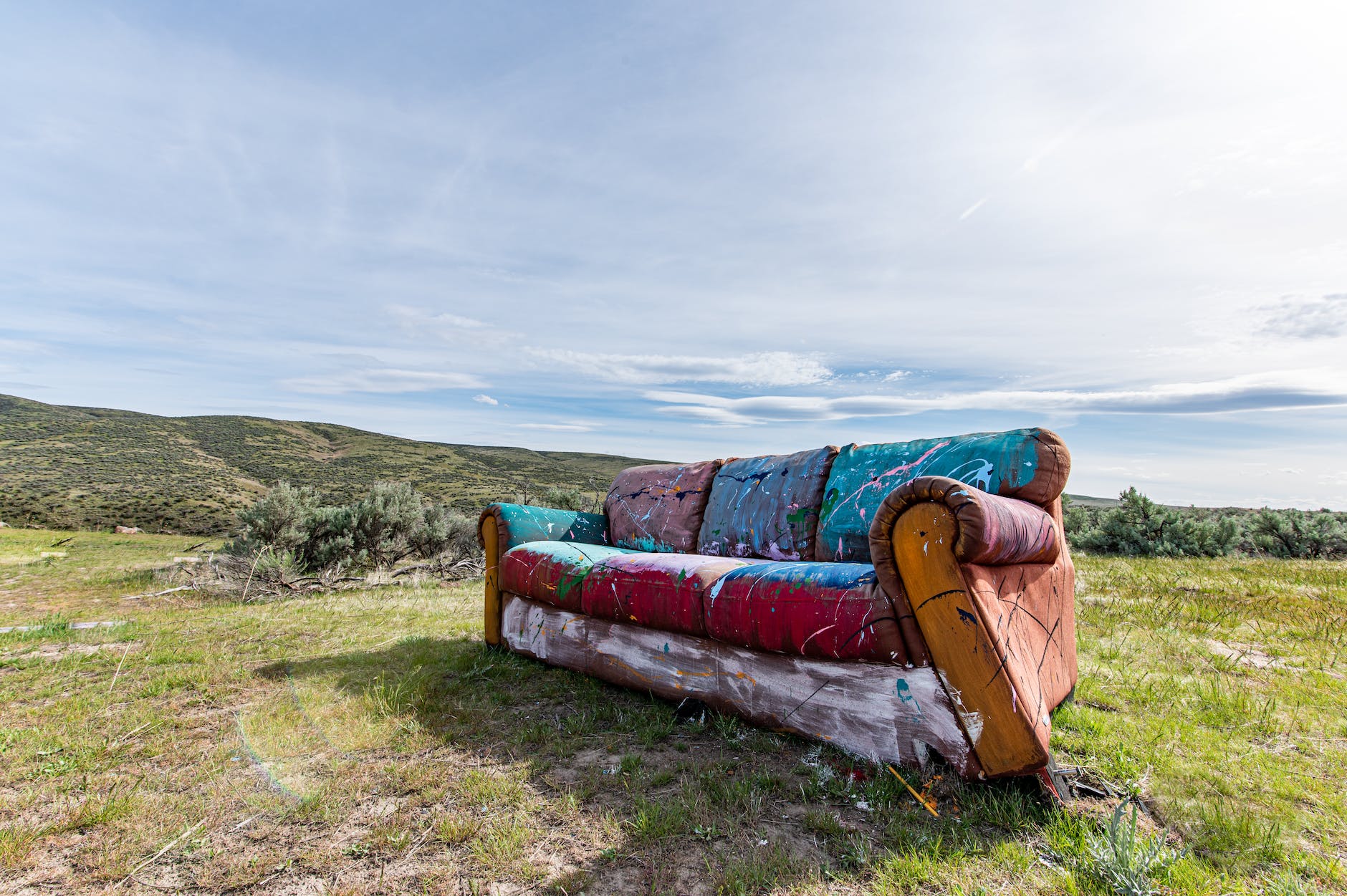
Here are some crucial pointers, whether you are painting a sofa or altering its color. It is essential to utilize only high-quality paint. Paint composed of low-quality materials will not yield the same results and will likely crack once dried. For upholstery, it is recommended to use fabric paint for optimal results. This will provide a seamless finish without making the sofa feel stiff.

Chalk paint on a couch
Before applying chalk paint on a couch, it is important to prepare the surface. To remove paint, use Goo Gone and wash the surface with warm water. Dry the piece completely. Lightly sand any areas that are rough with 220 grit paper. The entire couch doesn’t have to be sanded.
After you have prepared the surface you can paint the couch. A spray bottle or a brush are the best tools for applying the paint. This will allow the paint to penetrate fabric fibers. Even after multiple coats, it will last for years. To reach into buttons and crevices, you can use a paintbrush. Between coats, let the fabric dry completely. To protect your couch, apply a clear wax.
Oil-based paint
If you are looking for a long-lasting finish, oil-based paint is the best choice. It adheres to most surfaces and leaves a rich, lacquer-like appearance. This is the best option for high-traffic areas like a couch. You can also get this type of paint in flat, satin, or glossy finishes.
Before you start painting, be sure to understand the differences between oil and water-based paints. Water-based paint won’t stick well to oil-based paintings. Use rubbing alcohol to test the paint’s adhesion. Dip a white cloth in rubbing alcohol, and rub the wall with it. Water-based paints will transfer to a clean cloth easily, while oil-based paints will not.
Use fabric paint
If you want to paint your couch using fabric paint, you will need some basic tools. To paint the upholstery with fabric paint, you will need a nylon paintbrush, a drop cloth and a paint container. To add durability and prevent the paint from peeling, you may use sealing wax. To ensure that the paint spreads evenly, you may want to dampen your fabric with plain water.
After you’ve painted your couch, allow it to dry completely before applying the second layer. You should wait no more than an hour between each coat to ensure the paint does not dry too quickly.
Sanding
These are some helpful tips for painting a couch. Preparing furniture for painting is as simple as sanding. This is essential as you will want to inspect the final product before you start. It is important that you see the finished piece before you start painting.
Sanding furniture is crucial to ensure paint adheres properly. This will ensure that your new coat of paint will adhere to the furniture with a smooth and even finish. The furniture can be sanded with either an orbital or hand sander, depending on its condition. You will need 150-grit Sandpaper for this step. You can also use sanding blocks to reach hard-to-reach places.
Use a tack cloth
You can make your own tackcloth if you don’t have enough money to purchase a professional painter’s cloth. The basic cloth should measure approximately twelve by twenty-four inches. It doesn’t matter what size you choose. Just soak it in water, then dry it. Fold it in multiple layers.
It is not difficult to choose a tackcloth, but it is essential to do your research. It is crucial to make sure that the tackcloth doesn’t leave wax residue after drying, and doesn’t bleed paint. Tack cloths are suitable for small projects but professionals might prefer them for larger surfaces.
Use milk paint to cover a couch
Milk paint is a great way to give your couch a distressed appearance. Milk paint, which is thinner than regular paint, leaves the wood grains visible. This allows you to layer and distress. This can be applied to a sofa or couch with ease.
The first coat may appear streaky. Apply another coat to even out the color. Remember that milk paint can be porous so it must be sealed. It’s easy and shouldn’t take too much time.
Oil-based paint for leather couches
Oil-based paints can stain leather couches. There are methods to clean it. First, you need to dissolve the oil in the paint with a special solvent. This should remove most of the stain. Hydrogen peroxide can also be used to remove stubborn stains.
It is harder to remove oil-based paint than water-based. It is important to remove all paint from your couch. It’s not difficult if you act quickly. Once the paint dries, it will be more difficult to remove. Most paint stains can be removed with olive oil and soap. If you have a stubborn stain you can use an edged tool.
- About the Author
- Latest Posts
Introducing Ron, the home decor aficionado at ByRetreat, whose passion for creating beautiful and inviting spaces is at the heart of his work. With his deep knowledge of home decor and his innate sense of style, Ron brings a wealth of expertise and a keen eye for detail to the ByRetreat team.
Ron’s love for home decor goes beyond aesthetics; he understands that our surroundings play a significant role in our overall well-being and productivity. With this in mind, Ron is dedicated to transforming remote workspaces into havens of comfort, functionality, and beauty.
Beginners Guides
Craft Paint Storage
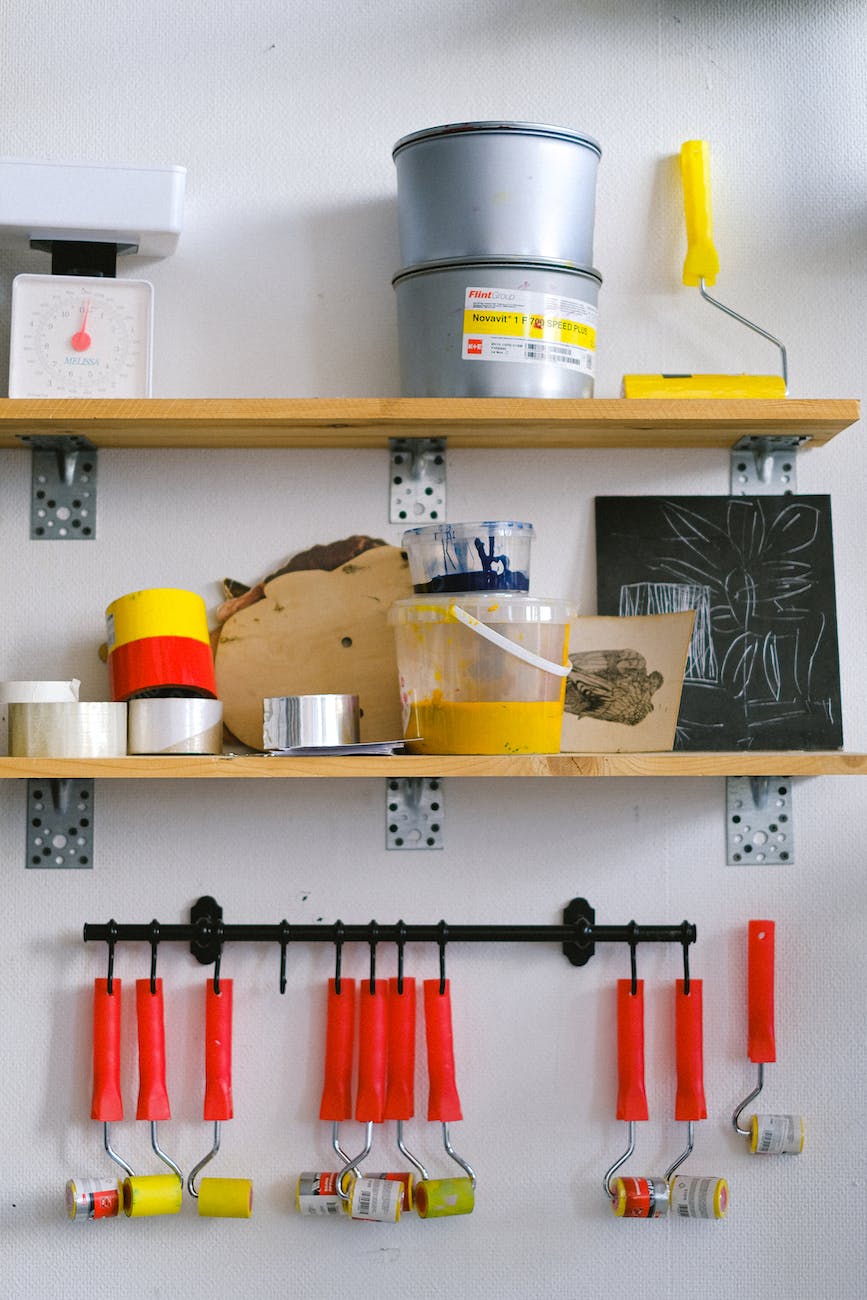
You should maintain the quality of your craft paints by storing them in a designated paint storage unit. A rotating organizer like the Craft Smart Paint Storage Spinner is an ideal choice. These units assist in organizing your paints for easy access and help in keeping them dry, which is crucial for preserving their quality.
Plydolex Army Painter
The Plydolex Army Painting Rack is a great storage solution and can store a variety of art supplies. It can store up to 74 paint bottles and 14 paint brushes. The organizer’s solid wood construction makes it durable and will last for many years. The Plydolex army painting wooden paint storage rack is a better option if you need a permanent solution to your paint and art supplies.
The right size Plydolex army paint rack is crucial. There are many sizes available so that you don’t run out paint storage space. The large holes make it easy to store larger bottles of paint, while the smaller holes can hold smaller ones.
The corner Plydolex storage rack for paint has 18 large holes to hold larger paint bottles. You can also use the fourteen smaller holes to store dropper-style paint containers. The rack’s design makes it easy to find paints and keeps them organized.
Citadel army painter
Dropper bottles are a great option for those looking to store their Citadel army colors. Dropper bottles work better than pots, and they will keep your paints from leaking, especially if your cat likes to mess up whenever he can. This paint storage solution has another advantage: It is compact. The 5mm thick PVC is light, waterproof, anti-corrosion and water-resistant. Although it is an excellent storage solution, it may not be compatible with all paints.
The Citadel paint set includes 48 pots of paint in three ranges: Shade, Layer, and Base. A sturdy plastic box holds two racks of twenty-one paints each. The lid has a handy tray that makes it easy for you to pick up and place the paints after use.
Citadel provides a paint storage system that is suitable for army painters. Modular design of the paint station allows you to store 30 different paints. The kit also comes with 7 paint brushes and a water bottle. The package also contains a painting guide. It is important to note that Citadel paint storage units may not be the only option on the market.
Citadel army paints are available in many gaming shops around the world. However, messy paints can result from pouring the paint into the pot. The paints will dry quicker if this is done. This is not recommended to paint large buildings or vehicles. This can cause more mess and dry paints faster.
- About the Author
- Latest Posts
Introducing Charles, the Editor in Chief at ByRetreat, whose passion for interior design and editorial excellence elevates every remote workspace to new heights. With his keen eye for detail, impeccable taste, and expertise in design, Charles brings a wealth of knowledge and creativity to the ByRetreat team.
As the Editor in Chief of a renowned lifestyle blog, Charles has honed his skills in curating captivating content and staying up-to-date with the latest trends in interior design. His deep understanding of aesthetics and the power of storytelling through design enables him to create remote workspaces that are not only visually stunning but also rich in personality and meaning.
Beginners Guides
How to Distress Your Kitchen Cabinets With Chalk Paint

Chalk paint is the top option for achieving a distressed look on your kitchen cabinets. This environmentally-friendly, low VOC paint is simple to clean and can be applied with a sprayer or brush in a variety of colors.
You can distress your kitchen cabinets with chalk paint

You can distress your kitchen cabinets with Chalk Paint. This is a great method to update your kitchen decor. Chalk paint is a special type of flat paint that sticks to almost all surfaces. After the painting is complete, you’ll need to apply a protective coat. Varathane Water-based Top Coat Matte is an option to achieve a matte look.
Preparing your cabinets for painting is important. Wash them with soap and water before you start. If you find any areas that are not showing through, spot-priming might be required. You will need to paint two to three coats. To achieve distressed effects, you can layer more than one colour.
You can distress your kitchen cabinets using chalk paint to give them a matte finish. However, you should seal them with a protective wax. It will protect them from staining or scratching. This protects paint but needs to be maintained. Wax is not heat resistant so you may need to reapply it occasionally.
Preparation
Before you paint your kitchen cabinets with chalk paint, it is important to prepare them. The paint will dry completely in approximately two weeks. Before applying the second coat, it is important that the first coat has dried completely. You can seal the paint with a lacquer, or clear wax if you prefer a traditional mellow finish.
Clean the surface before you begin chalk paint kitchen cabinets preparation. Although you can apply the paint to almost any surface, it’s best to have a smooth one. Sand the cabinet surface before you apply the paint. Fill in any gaps. Prime any areas not covered by paint. Apply two coats or more of paint to cover the entire area. To prevent chipping, you can add a wax topcoat after the paint dries.
You may need to fill in any gouges or scratches that are deep and rough if the surface is bare. You can cover small imperfections because chalk paint is thicker and more durable than regular paint. The paint will leave a rough finish.
Dry time
It is important to understand the drying time of chalk paint before you begin to paint your kitchen cabinets. It’s likely that the first coat will be streaky, so use it as a primer before you apply the second coat.
Chalk paint can be used on kitchen cabinets easily. It is easy to transform your kitchen’s appearance without spending too much. You can select from multiple colors and apply multiple layers. To achieve a distressed look, you can also use milk paint.
You must clean your cabinets thoroughly before applying chalk paint. You can’t let the paint show through if you don’t clean your cabinets well. You can use a degreasing product to clean the cabinets. You can wipe the cabinets clean using shop cloths. Repeat this process several times.
Sealing
To ensure that chalk paint kitchen cabinets lasts a long time, it is important to seal them. You can paint your cabinets to create an elegant farmhouse appearance or practical reasons. You should sand any damaged or patched areas before applying the sealer.
To seal your cabinets, you can use wax or polycrylic. Although wax is not as durable as acrylic, it will not yellow over time. If you decide to stick with wax, you will need to apply it again every few months. If you live in an area with high traffic, polycrylic is the best choice.
To preserve the new look, seal them with clear wax or lacquer after the chalk paint has been applied. Waxes provide a warm and tactile finish. Water-based polycryics, however, are more flexible. Before applying the second coat, let the polycryics dry completely.
- About the Author
- Latest Posts
Introducing Ron, the home decor aficionado at ByRetreat, whose passion for creating beautiful and inviting spaces is at the heart of his work. With his deep knowledge of home decor and his innate sense of style, Ron brings a wealth of expertise and a keen eye for detail to the ByRetreat team.
Ron’s love for home decor goes beyond aesthetics; he understands that our surroundings play a significant role in our overall well-being and productivity. With this in mind, Ron is dedicated to transforming remote workspaces into havens of comfort, functionality, and beauty.
-

 Vetted7 hours ago
Vetted7 hours ago15 Best Plants to Thrive on the North Side of Your House – A Gardener's Guide
-

 Vetted1 week ago
Vetted1 week ago15 Best Boxwood Varieties for Thriving in Full Sunlight
-

 Vetted1 week ago
Vetted1 week ago15 Best Ways to Label Clothes for Nursing Home Residents – Stay Organized and Efficient
-
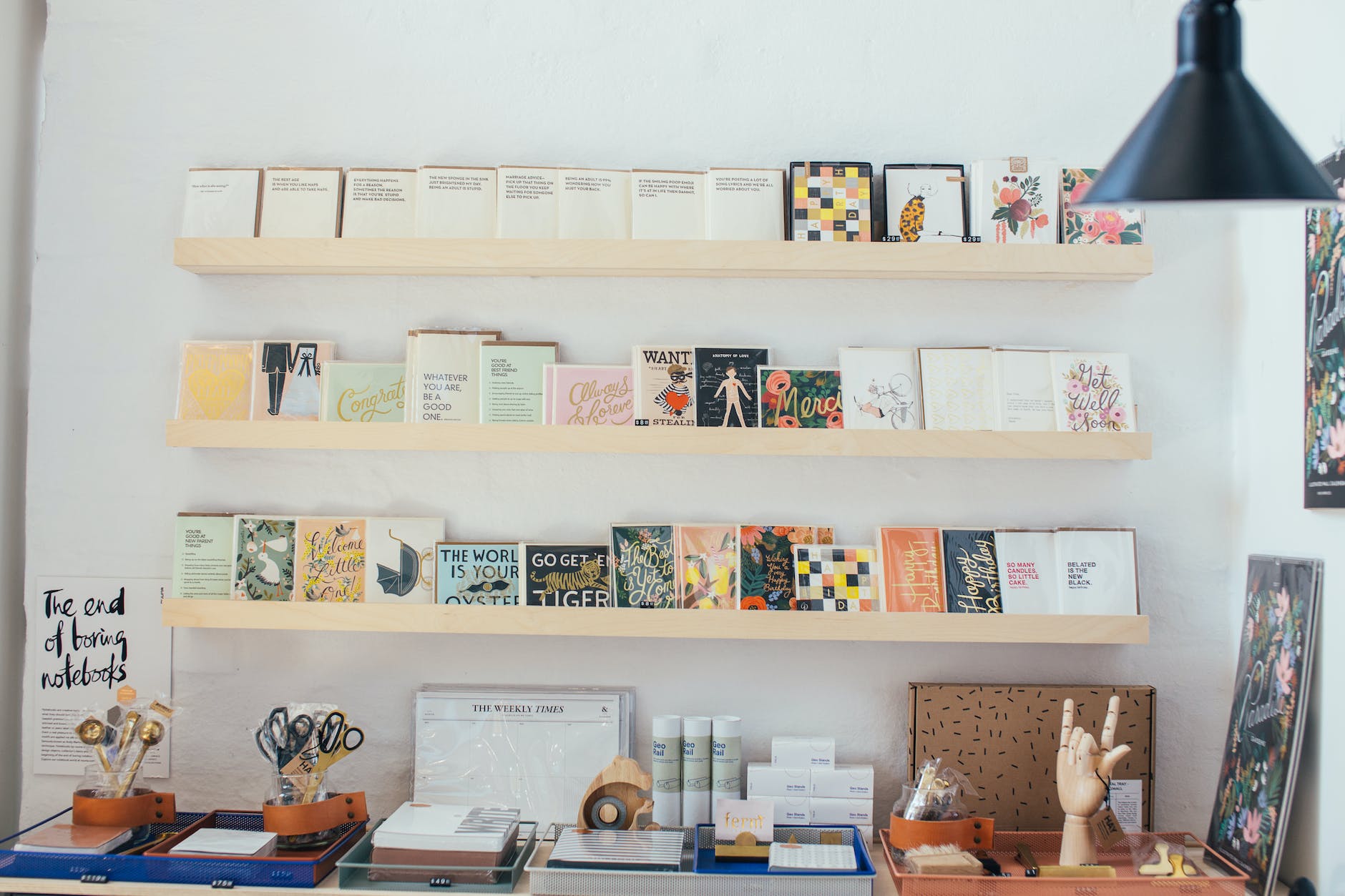
 Decor2 days ago
Decor2 days agoAre Home Decor Stores Profitable?
-

 Vetted1 week ago
Vetted1 week ago15 Best Dryer Vent Hoses to Keep Your Laundry Room Safe and Efficient
-
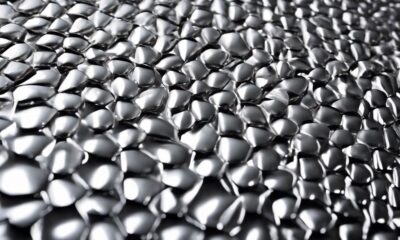
 Vetted1 week ago
Vetted1 week ago14 Best Cleaners for Aluminum Surfaces – Shine Bright Like a Diamond
-

 Vetted1 week ago
Vetted1 week ago15 Best Spider Sprays to Keep Your Home Arachnid-Free
-

 Vetted1 week ago
Vetted1 week ago15 Best Nightstand Charging Stations to Keep Your Devices Organized and Ready to Go






